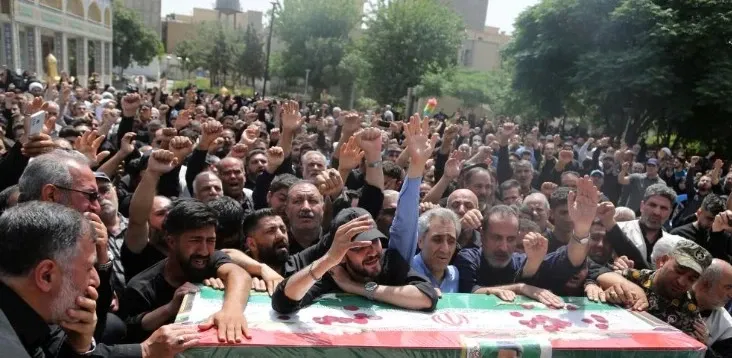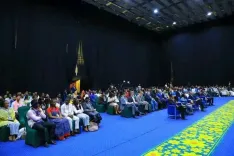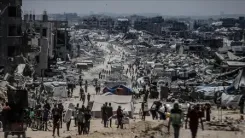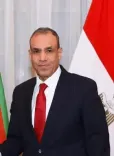Will Iran Commemorate Military Leaders and Nuclear Experts Killed in Conflict with Israel?

Synopsis
Key Takeaways
- Historic funeral ceremony to honor 60 individuals in Tehran.
- Tributes include military leaders and nuclear scientists.
- Event marks the profound human impact of the recent conflict.
- Security heightened across the capital ahead of the event.
- Large crowds expected to participate in the mourning.
Tehran, June 28 (NationPress) Iran is preparing to conduct a historic funeral ceremony on Saturday in Tehran, aimed at honoring 60 individuals, including high-ranking military leaders and esteemed nuclear scientists, who lost their lives in the recent 12-day conflict with Israel.
The ceremony will commence at 8:00 A.M. local time at Enghelab (Revolution) Square situated in central Tehran.
After the official tributes, a vast funeral procession will make its way to Azadi Square, located about 11 kilometers away, where additional rites will be conducted.
Among those being commemorated is General Mohammad Bagheri, a key figure in Iran's Islamic Revolutionary Guard Corps (IRGC) and the second-ranking officer in the Iranian military after the Supreme Leader Ayatollah Ali Khamenei.
Reports indicate that Bagheri will be interred alongside his wife and daughter.
Another notable individual being honored is nuclear scientist Mohammad Mehdi Tehranchi, who will also be buried with his wife.
The ceremony will pay tribute to a total of four women and four children, highlighting the profound human impact of the ongoing conflict.
The hostilities escalated on June 13 when Israel initiated a series of attacks, asserting that the strikes aimed to disrupt Iran's purported nuclear ambitions.
The Israeli offensive targeted significant figures and facilities in Iran, resulting in the deaths of over 30 high-ranking Revolutionary Guards commanders, including Commander-in-Chief Hossein Salami and the head of its Aerospace Forces, Amirali Hajizadeh.
According to the Iranian health ministry, these assaults have claimed at least 627 lives and left around 4,900 individuals wounded.
The funeral ceremonies are anticipated to attract large crowds and are viewed as a collective moment of grief.
State media in Iran have characterized this occasion as one of the most significant public funerals in recent times.
In preparation for the event, the government has heightened security measures across the capital, expecting attendance from prominent political and religious leaders, military officials, and thousands of citizens.








